Are guiris liked in Spain or just tolerated?
Wednesday, December 17, 2025
I don't think there is a general rule. Most "guiris" speak little Spanish, but they have purchasing power. So are we liked or just tolerated?
I am a "guiri" - a Northern European immigrant to Spain - but I do not fit the stereotype of a sunburnt person who wears sandals with socks, a "kiss-me-quick" hat, and totally inappropriate clothing, who speaks only English (or German or French) ever more loudly to be understood.
"Guiris" have a well-deserved bad reputation, in my opinion.
I am different, I think. I speak fluent Spanish and I didn't immigrate to Spain for the sun, sand and sangria.
I moved to this country because I loved the people, the lifestyle, the relative lack of stress and the low prices for most things.
I first came to Spain aged 20 to spend my year abroad, a compulsory part of a university languages degree. I was in San Sebastian in 1970. Franco was still alive (BTW a worse war criminal than Adolf Hitler) so it wasn't looking promising.
But I was fascinated with this slightly backward country with no video shops, with chaperones, little western influence and no contraception.
When my girlfriend from uni visited me she spotted straightaway that I felt at home. We later married, by the way, had two children, travelled extensively in Spain and bought two properties in Ronda (Malaga).
After 30 years together it all unravelled. I had a nervous breakdown, was made redundant from my job as a schools adviser/inspector and got divorced. It was 2005 and I was not in a good place.
But, Spain, in particular Ronda, rescued me.
Now 20 years later, I am a Spanish resident, I am re-married, have a great house and a vibrant social life, mainly with Spanish people.
The dictator, General Francisco Franco, who ruled Spain with an iron fist for nearly four decades, has been dead for 50 years and is a disgraced figure.
Spain is one of the most advanced and sophisticated democracies in Europe and the economy is booming under the socialist government of Pedro Sanchez, a formidable and likeable, and English-speaking politician prominent on the European and world stage.
There are some areas, chiefly on the coasts and in the islands, that are over-run with foreigners. These are places we avoid.
 0
Like
Published at 11:34 PM Comments (0)
0
Like
Published at 11:34 PM Comments (0)
Writers who loved Spain "Dead or Alive"
Sunday, December 1, 2024
The number of famous writers who visited and fell in love with Spain, but are now no longer with us, is significant.
In Ronda alone we were feted by American Washington Irving, Dane Hans Christian Andersen, plus Austrian Rainer Maria Rilke and American Ernest Hemingway.
 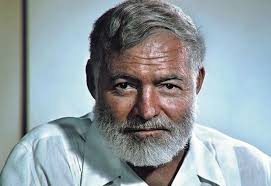
Rainer Maria Rilke [Photo: El Mundo] Ernest Hemingway [Photo: Acento]
I've already posted an article on Laurie Lee (see the right-hand side bar). Hemingway and Rilke will get articles just about them, but I intend to group Irving and a few others together.
George Orwell, although he only wrote one book about Spain, was also an important influence, and merits a post just about him.
Gerald Brenan, long time resident of Churriana, near Malaga airport, also will get an article, together with his American wife Gamel Woolsey.
Guy Hunter-Watts, a friend of mine, who published 10 books about walking in Andalucia, sadly died before his time, aged 59.
  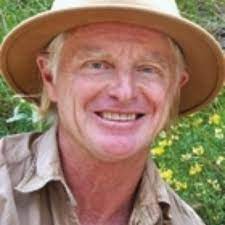
Gerald Brenan and Gamel Wolsey George Orwell Guy Hunter-Watts
[Opinion de Malaga] [Photo: BBC] [Photo: Cicerone Press]
***
There are also prominent writers, some famous and some less so at the moment, who are still living and breathing.
Among the famous ones, I have already posted articles on Jason Webster and Chris Stewart (see right-hand side bar).
 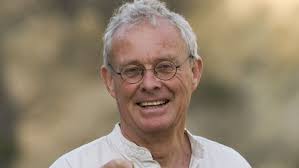
Jason Webster [Amazon] Chris Stewart [Facebook]
Karethe Linaee, originally from Norway, has published a great book about Ronda, "Casita 26", in both English and Spanish. Also a friend - she rented my apartment when she first came to Ronda.
Michael Coy, nominally Irish but from North Wales, and a de facto rondeño for some 20 years, has recently published a rival to War and Peace (it’s thicker than Toltoy’s masterpiece!), but an amazing achievement, nevertheless. "The Luckless Girl" is an epic poem! Also a friend. We used to be drinking buddies!
Emma Cherry is a professional actress and playwright who lives in Benaojan (Malaga). She recently published a selection of plays she has written with her friend Charo Carrasco. Blimey! I know both of them too!
  
Karethe Linaee con su traductora [Diario Ronda] Emma Cherry y Charo Carrasco [CharryTV] Michael Coy [PoetrySoup]
David Baird is an experienced foreign correspondent, editor, author and photographer. He has twice won Spain’s national travel-writing prize for foreign writers and journalists. Lives in Frigiliana (Malaga).
George Sand - French female writer who lived in Mallorca with composer Frederic Chopin.
Edward Lewine - American writer who shadowed Ronda bullfighter 'Fran' Rivera for a year and wrote "Death in the Sun".
Robert Elms - Essex-born TV commentator and writer, has a home in Barcelona. Wrote "Spain: A Portrait after the General". Boyfriend of singer Sade in the 1980s. Famously detests The Beatles.
 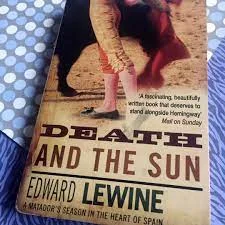 
David Baird [Amazon] [www.help-me-ronda.com] Robert Elms [Photo: 5x15]
Lorraine Mace - prolific crime writer who lives on the Costa del Sol.
Paul Whitelock, long-time Ronda resident, has four books in the pipeline. He just needs a publisher.
The Costa Press Club has members who are published writers, as well as prominent journalists. Too many to name here.
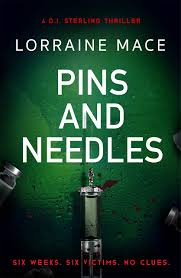 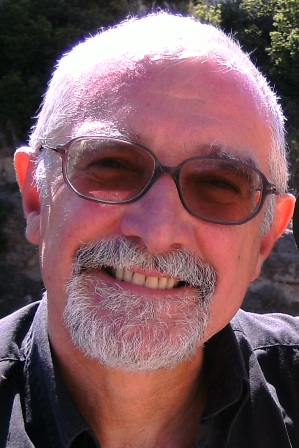 
[Photo: Amazon] Paul Whitelock [Photo: KS] Costa Press Club with Picasso in Malaga [Photo: KS]
***
This article is just a taster, articles about these people will appear in due course on “Guiris” Galore.
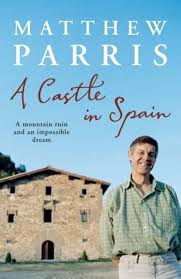 Postscript: Postscript:
I was browsing my bookshelves yesterday, when I came across a book called "A Castle in Spain" written in 2005 by Matthew Parris, former Conservative MP, then journalist and TV commentator.
He and his family had bought a falling-down house in the mountains of Catalunya. I had forgotten alI about the book. had bought it when it was published 19 years ago and read it from cover to cover very quickly.
The book describes what they went through to bring the house back to life. As someone who was restoring a house in Ronda around the same time, I could identify very much with Parris' recollections. Well worth including in this blog.
[Photo courtesy of amazon.es]
© Paul Whitelock
Tags:
Amazon, BBC, "Casita 27", Chris Stewart, Costa Press Club, David Baird, "Death in the Sun", Edward Lewine, Ernest Hemingway, 'Fran' Rivera, Frederic Chopin, Gamel Woolsey, George Orwell, George Sand, Gerald Brenan, “Guiris” Galore, Guy Hunter-Watts, Karethe Linaee, Karl Smallman, Laurie Lee, Lorraine Mace, Matthew Parris, Michael Coy, Paul Whitelock, PoetrySoup, Rainer Maria Rilke, Robert Elms, Sade, "Spain: A Portrait after the General", The Beatles, Washington Irving
 0
Like
Published at 4:27 PM Comments (10)
0
Like
Published at 4:27 PM Comments (10)
LENOX NAPIER – Troublemaker or good bloke?
Friday, November 29, 2024
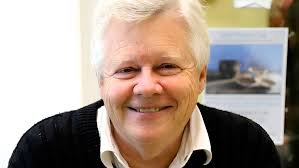 I don’t know Lenox Napier in person. A shame, as I think we are kindred spirits. I only “know” him through his prolific output and from reading about his history, which is fascinating as well as controversial. More of that later. I don’t know Lenox Napier in person. A shame, as I think we are kindred spirits. I only “know” him through his prolific output and from reading about his history, which is fascinating as well as controversial. More of that later.
We communicate frequently online. I react positively to his musings, and he seems to like what I write.
We really must meet up before we’re dead or too senile.
So …..
Trouble is, Mojácar (Almería), where Lenox lives, is a good five hours by road from my home in Ronda (Málaga).
I spent a very enjoyable two weeks in Mojácar when my kids were 5 and 2 years old (they are now 41 and 38!). However, from what Lenox writes, the place has “gone to the dogs”!
English friends of ours, property speculators, are cutting ties with the Serrania de Ronda, where they have bought, done up and sold a number of houses, and will be living from now on in Cabrera near Mojácar.
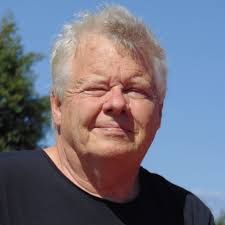 So, now we have two reasons to go. To meet Lenox, and to visit A and T. So, now we have two reasons to go. To meet Lenox, and to visit A and T.
No, three reasons. My second and current wife, Rita, has never been there.
Let’s see what happens in 2025 …..
***
Back to Lenox Napier, here’s a précis in English of an article about him which appeared in Spanish in La Voz de Almeria earlier this year (2024).
11 May, 2024
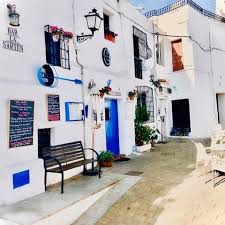 Lenox Napier is an affable Englishman, a mojaquero since 1967. He was born and raised as an only child to wealthy bohemians in the county of Norfolk in eastern England. Lenox's parents were the first foreigners to open a bar in Mojácar. Lenox Napier is an affable Englishman, a mojaquero since 1967. He was born and raised as an only child to wealthy bohemians in the county of Norfolk in eastern England. Lenox's parents were the first foreigners to open a bar in Mojácar.
The bar is still there in the church square; it is called La Sartén.
Lenox Napier has dedicated his life to communicating with people, to his family, and to his horses.
"My parents liked to drink, which didn't fit well with sober Englishmen. We used to visit Spain and the south of France yet finally they decided to settle in Almeria," says Lenox.
Lenox speaks, in Spanish, with admirable honesty, a slow voice and a strong British accent. He says that his character as a foreigner in Spain has allowed him to be peculiar. “Nowadays I feel quite out of place in England,” he admits.
When Lenox arrived in Almeria, it was the era of the “spaghetti western”. It was also a refuge for artists and a favourite spot for Hollywood stars. The tourist boom was yet to come.
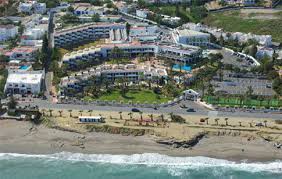 "The mayor was a great man, he promoted Mojácar and managed to bring the Parador to the town," says Lenox. "The mayor was a great man, he promoted Mojácar and managed to bring the Parador to the town," says Lenox.
The story goes that the mayor, Jacinto Alarcón, went to Madrid and sat in front of the door of the office of the Minister of Information and Tourism, Manuel Fraga, and did not move until the chief of staff confirmed the construction of the Parador in Mojácar.
"It was said that the eldest son inherited the house in the village and the youngest a piece of land on the beach, no one wanted to live near the sea. The mayor gave land to people to build and live in," Lenox recalls.
Mojácar was on the verge of disappearing as a town in the last third of the 20th century due to depopulation, emigration and lack of economic activity.
It was a coastal town with no fishing industry, they only had subsistence farms (huertas de subsistencia).
Lenox, who was a teenager at the time, having just come to Spain from an English boys' boarding school with more than 700 boys, attended a school in Sevilla where he was regarded by his fellow pupils as an exotic specimen.
A year later he left school and went travelling with the money he had inherited. He discovered the United States, Mexico and France until he returned to Almeria and founded the newspaper The Entertainer.
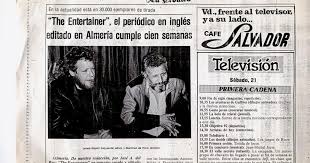 He had never had contact with the world of business or journalism before, but he was passionate about literature. He had never had contact with the world of business or journalism before, but he was passionate about literature.
"The Entertainer was a free newspaper that ran from 1985 to 2000. It went out three times a week in Marbella, Altea and Mojácar. We printed 40,000 copies on the press of La Voz de Almería and from there it was distributed to more than 1,400 different collection points," he says.
“It was one of the first English-language newspapers in Almeria, it lived off advertising and had no institutional support,” says Lenox somewhat miffed.
In the end, he sold the paper in a deal from which he emerged somewhat burned. "I've always liked writing, but not the business. Although I don't really care, I've made it this far safe and sound" and lets out a laugh.
Lenox also wrote for the publication El Indálico and worked at Cope Mojácar. “Good years, good memories.”
Lenox is a traditional and idealistic man, defender of Almeria and connoisseur of its history, gastronomy and culture.
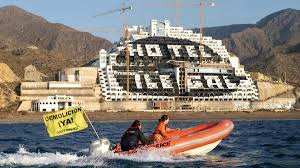 He is still indignant when he remembers the illegal houses that were built during the real estate boom of 2008 or the ugliness of the illegal hotel in Algarrobico. He is still indignant when he remembers the illegal houses that were built during the real estate boom of 2008 or the ugliness of the illegal hotel in Algarrobico.
Lenox gave voice to this cause because many foreigners bought properties that did not even have a deed and, he considers that this greatly damaged the image of the province.
Today, retired to his house in Mojácar, under a roof of reeds and wooden beams that support the whitewashed walls, he remembers his time in the area.
How the Press changed after the coming of the internet.
 Every week he writes a blog called Business Over Tapas and to date there have been more than 500 posts. Subscribers receive the weekly in their email although it can also be read on the Facebook page of the same name. Every week he writes a blog called Business Over Tapas and to date there have been more than 500 posts. Subscribers receive the weekly in their email although it can also be read on the Facebook page of the same name.
"I don't make money, I gain notoriety and we authors like this a lot," he says with a laugh.
The news-reporting is very thorough, politically left-leaning, but free enough to give Pedro Sánchez's government a ticking-off when required.
"When you're old you either die bored or you do things. I never liked television; I find it very passive. But I have always liked to write and to read because with a book you can travel", wise words from this most Almerian of foreigners in Mojácar
Controversy
Lenox Napier has had the odd bit of bother over his nearly six decades living in Mojácar.
Possibly the worst was when he was accused, tried and found guilty of defaming Michel and Steven Euseden, back in 2014.
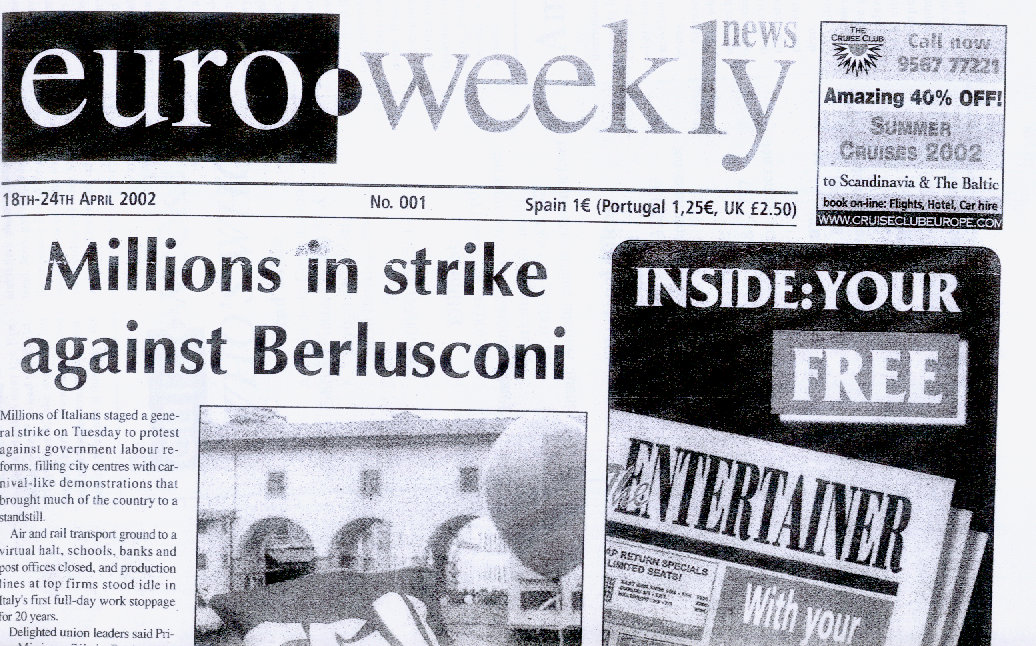 However, all was not as it seemed. The circumstances surrounding the Euesdens’ acquisition of The Entertainer (later re-named the Euro Weekly News) were highly suspicious. In the view of one commentator at the time, the Euesdens stole The Entertainer. However, all was not as it seemed. The circumstances surrounding the Euesdens’ acquisition of The Entertainer (later re-named the Euro Weekly News) were highly suspicious. In the view of one commentator at the time, the Euesdens stole The Entertainer.
There is no question that Lenox Napier’s published attacks on the Euesdens were over the top but with just cause and legally sufficient reason.
The paltry sum awarded by the court is merely a token acknowledgement that the Euesdens were defamed.
Read the full story here:
Lenox Napier found guilty of defaming the Euesdens - Olive Press News Spain
More Controversy
ANIMAL RIGHTS FOCUS: A positive view of bullfighting in Spain
Those who have their ideas made up about ‘animal cruelty’ or ‘Spanish stone-age traditions’ aren’t going to be swayed by me talking loftily about ‘art’, ‘culture’ or that fruity word ‘catharsis’.
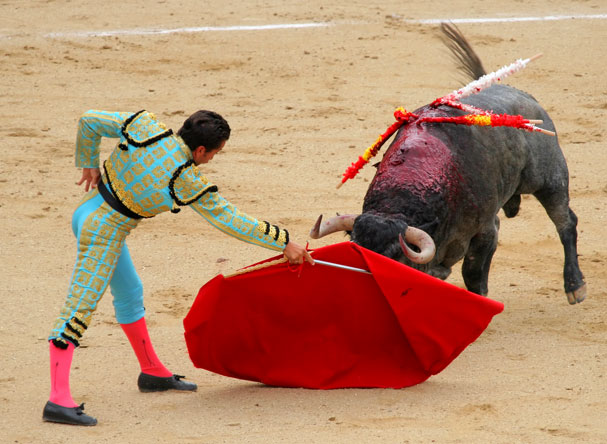 Many British residents in Spain have been ‘got at’ by their white-bread diet of satellite television and entertainers of the standard of Ricky Gervais, who makes his name by publicly playing with puppies and repeatedly announcing that anyone who doesn’t follow his wholesome lead is an utter shit. Many British residents in Spain have been ‘got at’ by their white-bread diet of satellite television and entertainers of the standard of Ricky Gervais, who makes his name by publicly playing with puppies and repeatedly announcing that anyone who doesn’t follow his wholesome lead is an utter shit.
Read the full article here:
ANIMAL RIGHTS FOCUS: A positive view of bullfighting in Spain - Olive Press News Spain
Thursday, 28 March 2019
Mojácar Rubble
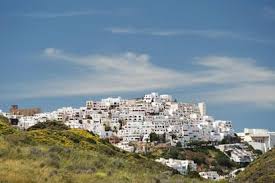 Around a hundred years ago, Mojácar had a population of six thousand people. Almost all of them lived either in the village itself, or in the surrounding hamlets, where water was available. Unlike today, few if any of them lived on the beach. Around a hundred years ago, Mojácar had a population of six thousand people. Almost all of them lived either in the village itself, or in the surrounding hamlets, where water was available. Unlike today, few if any of them lived on the beach.
By the fifties, there was little left of the village. From six thousand, now only six hundred remained. Plans were afoot to be ruled from next-door Carboneras.
Then, the Civil Governor in far-off Almería City chose Jacinto Alarcón to be the new mayor. He offered to give away ruins to those who would fix them up within a year. There were several takers including a few senior foreign diplomats (the Calle de los Embajadores in the village is tribute to this).
His second idea was to approach the Minister of Tourism in Madrid, Manuel Fraga Iribarne, to build a Parador hotel on Mojácar Playa. To his astonishment, the minister agreed and the hotel opened in 1966.
Jacinto's ambitions worked and the fortunes of Mojácar were reversed. By 1965, the village was showing signs of life again.
Read the full story here:
.
Lenox Napier: Mojácar Rubble
Monday, 2 August 2021
A Spanish Passport
 There are a lot of pluses in being a foreigner. There are a lot of pluses in being a foreigner.
One of them is that you can be eccentric without anyone minding too much (“ah well, foreigners, hey?”) and another is that you can learn a whole new culture: its language, history and customs.
If you want to.
Read this article in full here:
Lenox Napier: A Spanish Passport
Endword
So, Lenox, in 2025 I plan to go back to Mojácar for the first time in 35 years. To meet up with you; my friends A and T; and to show my lovely German wife Rita “wie die andere Hälfte lebt” (how the other half lives).
© Paul Whitelock
Links:
ANIMAL RIGHTS FOCUS: A positive view of bullfighting in Spain - Olive Press News Spain
Lenox Napier: A Spanish Passport
Lenox Napier found guilty of defaming the Euesdens - Olive Press News Spain
Lenox Napier: Mojácar Rubble
Acknowledgements:
Claire Wilson, La Voz de Almeria, Lenox Napier, Melanie Lupiáñez, The Olive Press
Photos:
Diario.es
Facebook
La Voz de Almeria
Minube
Real Estate
Spanish Shilling
Tags:
Almeria, “A Spanish Passport”, Business Over Tapas, Calle de los Embajadores, Claire Wilson, Euro Weekly News, “how the other half lives”, Jacinto Alarcón, La Sartén, La Voz de Almeria, Lenox Napier, Madrid, Málaga, Manuel Fraga Iribarne, Melanie Lupiáñez, Michel Euseden, Minister of Tourism, Mojácar, Mojácar Playa, Mojácar Rubble, Paul Whitelock, Parador, Pedro Sánchez's government, Ronda, Steven Euseden, The Entertainer
 2
Like
Published at 12:39 AM Comments (2)
2
Like
Published at 12:39 AM Comments (2)
CHRIS STEWART – English writer, sheep shearer and farmer
Thursday, November 28, 2024
 I was given a copy of Chris Stewart's “Driving Over Lemons” by my good friend, John Cottam*, a fellow Spanish teacher, as a 50th birthday present in 2000. Strange title, I thought, but, hey, what a great read it turned out to be. It prompted me to read other books by foreigners who had bought property in Spain. I was given a copy of Chris Stewart's “Driving Over Lemons” by my good friend, John Cottam*, a fellow Spanish teacher, as a 50th birthday present in 2000. Strange title, I thought, but, hey, what a great read it turned out to be. It prompted me to read other books by foreigners who had bought property in Spain.
[*John Cottam, my friend, sadly died on 16 January 2011. Way too young. He was only 59. I was 60 at the time. His passing was very poignant.]
Funeral Notices
***
I originally wrote an appreciation of Chris Stewart a couple of years ago. Here’s what I wrote then:
***
CHRIS STEWART – rock drummer, sheep shearer, hispanophile and writer
By The Culture Vulture
Friday, January 14, 2022
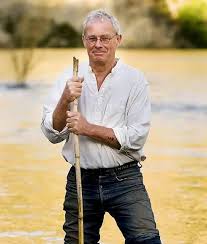 Chris Stewart shot to fame with “Driving Over Lemons” in 1999. Funny, insightful and real, the book told the story of how he bought a peasant farm on the wrong side of the river, with its previous owner still resident. Chris Stewart shot to fame with “Driving Over Lemons” in 1999. Funny, insightful and real, the book told the story of how he bought a peasant farm on the wrong side of the river, with its previous owner still resident.
“Driving Over Lemons”
No sooner ha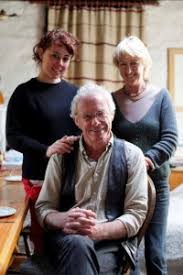 d this Englishman set eyes on El Valero than he handed over a cheque. Now all he had to do was explain to Ana, his wife that they were the proud owners of an isolated sheep farm in the Alpujarra Mountains in Southern Spain. That was the easy part. d this Englishman set eyes on El Valero than he handed over a cheque. Now all he had to do was explain to Ana, his wife that they were the proud owners of an isolated sheep farm in the Alpujarra Mountains in Southern Spain. That was the easy part.
Lush with olive, lemon, and almond groves, the farm lacks a few essentials—running water, electricity, an access road. And then there’s the problem of rapacious Pedro Romero, the previous owner, who refuses to leave.
A perpetual optimist, whose skill as a sheepshearer provides an ideal entrée into his new community, Stewart also possesses an unflappable spirit that, we soon learn, nothing can diminish.
Wholly enchanted by the rugged terrain of the hillside and the people they meet along the way—among them farmers, including the ever-resourceful Domingo, other expatriates and artists—Chris and Ana Stewart build an enviable life, complete with a daughter, Chloe, and dogs, in a country far from home.
His sequels to “Driving Over Lemons: An Optimist in Andalucia” are “A Parrot in the Pepper Tree”, and “The Almond Blossom Appreciation Society”. They are also great reads and became international bestsellers too.
  
The Spanish versions of Chris Stewart's Trilogy [Photos courtesy of Google]
Chris Stewart - Background
Born in Crawley, Surrey, in 1951 and raised in Horsham in Sussex, Stewart was a classmate of Tony Banks and Peter Gabriel at Charterhouse School in Surrey, and joined them in a school band which went on to become Genesis in January 1967.
 Stewart appears on Genesis's first two singles, The Silent Sun / That's Me and A Winter's Tale / One-Eyed Hound. He also drums on their first album. Despite this he was fired from the band in the summer of 1968 due to his poor technique and was replaced by John Silver. Stewart appears on Genesis's first two singles, The Silent Sun / That's Me and A Winter's Tale / One-Eyed Hound. He also drums on their first album. Despite this he was fired from the band in the summer of 1968 due to his poor technique and was replaced by John Silver.
After his somewhat short career as a rock musician he joined a circus, learned how to shear sheep, went to China to write the Rough Guide, gained a pilot’s license in Los Angeles, and completed a course in French cooking.
Genesis post-Stewart [Photo: Radio Futuro]
Other publications
Stewart's publisher, Sort of Books, released another memoir in 2009, entitled Three Ways to Capsize a Boat: An Optimist Afloat. This one focused on sailing.
In 2014 Sort Of Books published a further book of stories, Last Days of the Bus Club, which focuses on his daughter's going to university, and his and Ana's subsequent life alone on the farm.
Stewart has also contributed to two books in the Rough Guides series: the Rough Guide to Andalucia and the Rough Guide to China.
A personal perspective
Chris Stewart's trilogy about life in Órgiva certainly inspired me to buy property in Spain, do it up and eventually live here.
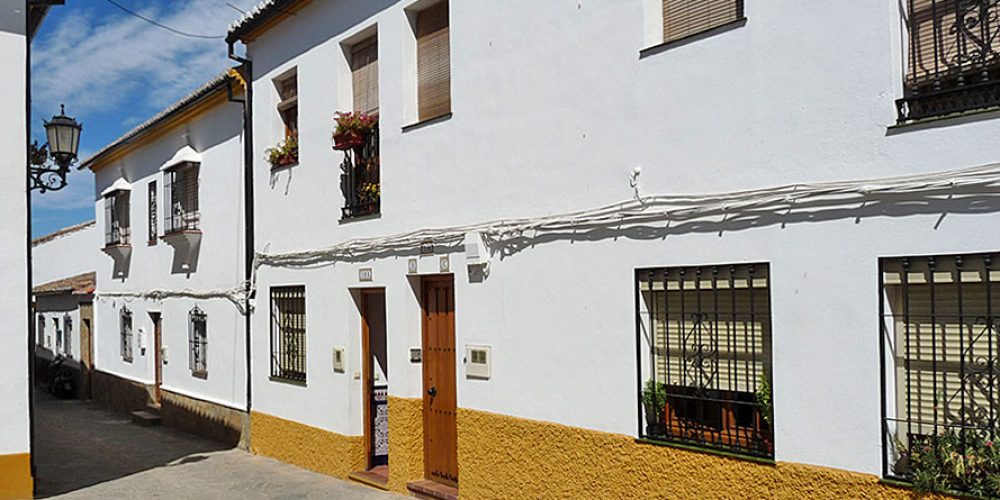 By 2001 my first wife, Jeryl, and I had bought our first Spanish property, a modern apartment in a comunidad de propietarios in Ronda (Málaga). I kept Piso Blanco for 18 years. By 2001 my first wife, Jeryl, and I had bought our first Spanish property, a modern apartment in a comunidad de propietarios in Ronda (Málaga). I kept Piso Blanco for 18 years.
In 2003 we bought a house, a semi-ruin, to do up. Also in Ronda. I sold Casa Blanca in 2008.
In 2005 I retired from work and got divorced and that summer I “reformed” a house in Ronda for my new girlfriend of the time, Maude. El Rincón was sold on in 2010.
In September 2008 I met a lovely German lady who was living in Montejaque, a mountain village near Ronda and I moved to live there full-time at the end of December 2008.
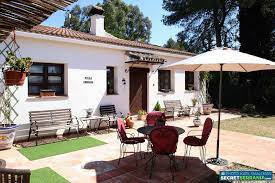 In 2011 I bought a villa with pool and gardens for me and Rita, who became my second wife in 2010, to live in. 13 years on we are still in Villa Indiana, which is in Fuente de la Higuera, just outside Ronda. In 2011 I bought a villa with pool and gardens for me and Rita, who became my second wife in 2010, to live in. 13 years on we are still in Villa Indiana, which is in Fuente de la Higuera, just outside Ronda.
In 2020 I bought another reforma. I’m just finishing off Casa Real, in Montejaque, which will be a vivienda rural from April 2022.
[Note: Villa Indiana is available to rent at:
3 Bedroom (Sleeps 6) House in Montejaque, Málaga (P50774) - No Booking Fees ]
***
So, thank you, Chris Stewart for the inspiration. That’s why you are number three on my list of top writers about Spain.
Note: To read about numbers 1 and 2 on that list and indeed the Culture Vulture’s full top five, click on the links below.
© Paul Whitelock
Links:
Funeral Notices
JASON WEBSTER – American born writer of fiction and non-fiction
LAURIE LEE - English author and Spanish Civil War volunteer (1914 - 1997)
Top 5 writers on Spain
3 Bedroom (Sleeps 6) House in Montejaque, Málaga (P50774) - No Booking Fees
Photos:
Diario Sur
entrelimon.es
Google
Paul Whitelock
Radio Futuro
VozpÓpuli
Tags:
50th birthday present, access road, almond groves, Alpujarra Mountains, Ana Stewart, “A Parrot in the Pepper Tree”, books by foreigners who had bought property in Spain, buy property in Spain, Casa Blanca, Casa Real, Charterhouse School, China, Chloe, Chris Stewart, circus, comunidad de propietarios, course in French cooking, Culture Vulture, Domingo, “Driving Over Lemons”, electricity, El Rincón, El Valero, Fuente de la Higuera, Genesis, hispanophile, isolated sheep farm, Jason Webster, Jeryl, John Cottam, John Silver, Last Days of the Bus Club, Laurie Lee, lemon, Los Angeles, Málaga, Montejaque, olive, Órgiva, our first Spanish property, Paul Whitelock, Pedro Romero, Peter Gabriel, pilot’s license, Piso Blanco, reforma, Rita, rock drummer, rock musician, Ronda, Rough Guides, Rough Guide to Andalucia, Rough Guide to China, running water, shear sheep, sheepshearer, Sort of Books, “The Almond Blossom Appreciation Society”, Three Ways to Capsize a Boat: An Optimist Afloat, Tony Banks, Villa Indiana, villa with pool and gardens, vivienda rural, writer
 0
Like
Published at 8:36 AM Comments (0)
0
Like
Published at 8:36 AM Comments (0)
JASON WEBSTER – American born writer of fiction and non-fiction
Wednesday, November 27, 2024
When a friend gave me a copy of Jason Webster’s recently published “Duende” back in 2003, I was fascinated by the secrets this “outsider” had managed to unearth after penetrating the closed world of flamenco.
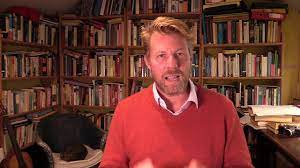
I subsequently sought out other books by Webster and came across “Andalus” and “¡Guerra!”, both of which I delighted in reading.
Webster is number 2 on my list of foreign writers on Spain after the admirable Laurie Lee (qv).
I posted this article about Webster back in 2021:
***
JASON WEBSTER - Writer, Flamenco Obsessive and Hispanophile
By The Culture Vulture
18 December 2021

The Culture Vulture tells us more about the man and his books.
Biographical Details
JASON WEBSTER was born in California to British parents in 1970 and spent his childhood in the USA, Britain and Germany. He first moved to Spain in the early 1990s having graduated in Arabic and Islamic History from St John’s College, Oxford.
He has written five non-fiction books on Spanish themes, which we shall consider later in this article.
 Webster has also written a biography of the Spanish WWII double agent Garbo (The Spy with 29 Names); and the Max Cámara series of crime novels. Webster has also written a biography of the Spanish WWII double agent Garbo (The Spy with 29 Names); and the Max Cámara series of crime novels.
Webster has appeared in TV documentaries for the BBC, Five and the Discovery Channel as an expert on Moorish Spain.
He has also written extensively for British and Spanish newspapers, including The Financial Times, The Daily Telegraph, The Guardian, The Observer, and El Asombrario.
He is married to the flamenco dancer Salud Botella and has two children.
Books on Spain
I first came across Webster’s work when a friend gave me a copy of the recently published “Duende” back in 2003. I was stunned. This “outsider” had managed to penetrate the closed world of flamenco and had been able to unearth some of its secrets.
The following year he published “Andalus”, a book about the impact of the Moorish occupation from 711 to 1492 on the Iberian Peninsula.
Then, in 2006, came “¡Guerra!” which studied the wounds left by the Civil War on contemporary Spain.
In 2009 “Sacred Sierra” described the first year of his time spent living on a mountain.
After a wait of a decade, during which Webster devoted his time to writing fiction and to other activities, in 2020 we finally got his latest non-fiction work “Violencia”, in which he demonstrates that the country’s history has been dominated by violence and brutality.
“Duende”
 “Duende: A journey in search of Flamenco” (2003), which recounts Webster’s move to Spain after university and his quest to learn flamenco guitar and the path to the elusive yet passionate feeling of duende, an untranslatable term referring to the feeling that is the essence of flamenco. “Duende: A journey in search of Flamenco” (2003), which recounts Webster’s move to Spain after university and his quest to learn flamenco guitar and the path to the elusive yet passionate feeling of duende, an untranslatable term referring to the feeling that is the essence of flamenco.
Having pursued a conventional enough path through school and university, Webster was all set to enter the world of academe. But when his girlfriend of some years dumped him unceremoniously, he found himself at a crossroads.
Abandoning the world of libraries and the future he had always imagined for himself, he headed off instead for Spain in search of duende, the intense emotional state – part ecstasy, part desperation – so intrinsic to flamenco.
“Duende” is an account of his years spent in Spain feeding his obsessive interest in flamenco: the tyranny of his guitar teacher; his passionate affair with Lola, a flamenco dancer; in Madrid, living with gypsies in their dislocated, cocaine-fuelled world, stealing cars by night and sleeping away the days in tawdry rooms.
Finding himself spiralling self-destructively downwards he goes to Granada bruised and battered, after two years of total immersion in the flamenco lifestyle.
In the tradition of Laurie Lee’s classic “As I Walked Out One Midsummer Morning”, “Duende” charts a young man’s emotional coming of age and offers real insight into the passionate essence of flamenco.
Miranda France, writing in the Guardian, admitted that her first thought on picking up “Duende” was that Jason Webster‘s stated passion for flamenco sounded a bit dubious.
“My second thought … was that it looked a bit boring. I was wrong on both counts. “Duende” is a fascinating book, the most gripping I have read for years. I can’t remember ever before having stuck my fingers in my ears to block out the wails of my children in order to finish a chapter!”
“I don’t believe that everything in “Duende” is true. It doesn’t matter – Jason Webster is an exceptional writer, and this is a great book.”
“Andalus”
 “Andalus: Unlocking the Secrets of Moorish Spain” (2004) examines the deep impact left on Spain, and by extension the rest of Europe, by the Moorish presence during nearly 800 years. “Andalus: Unlocking the Secrets of Moorish Spain” (2004) examines the deep impact left on Spain, and by extension the rest of Europe, by the Moorish presence during nearly 800 years.
As Islam and the West were preparing to clash once again, Jason Webster embarked on a quest to discover Spain’s hidden Moorish legacy and lift the lid on a country once forged by both Muslims and Christians. He meets Zine, a young illegal immigrant from Morocco, a twenty-first-century Moor, lured over with the promise of a job but exploited as a slave labourer on a fruit farm. Jason’s life is threatened as he investigates the agricultural gulag, Zine rescues him, and the unlikely pair of writer and desperado take off on a rollercoaster ride through Andalucía.
While Webster unveils the neglected Arab ancestry of modern Spain – apparent in its food, language, people and culture – Zine sets out on his own parallel quest, a one-man peace mission to resolve Muslim-Christian tensions by proving irresistible to Spanish señoritas.
“¡Guerra!"
 “¡Guerra!: Living in the shadows of the Spanish Civil War” (2006) studied the wounds left by the Civil War on contemporary Spain through a combination of history and travel. “¡Guerra!: Living in the shadows of the Spanish Civil War” (2006) studied the wounds left by the Civil War on contemporary Spain through a combination of history and travel.
After twelve years in Spain, Jason Webster had developed a deep love for his adopted homeland; his life there seemed complete. But when he and his Spanish wife moved into an idyllic old farmhouse in the mountains north of Valencia, by chance he found an unmarked mass grave from the Spanish Civil War on his doorstep. Spurred to investigate the history of this conflict, a topic many of his Spanish friends still seemed to treat as taboo, he began to uncover a darker side to the country.
Witness to a brutal fist-fight sponsored by remnants of Franco’s Falangists, arrested and threatened by the police in the former HQ of the Spanish Foreign Legion, sheltered by a beautiful transvestite, shunned by locals, haunted by ghosts and finally robbed of his identity, Webster encountered a legacy of cruelty and violence that seems to linger on seventy years after the bloody events of that war.
As in his previous books, “Duende” and “Andalus”, “¡Guerra!” reveals the essence of modern Spain, which few outsiders ever manage to see. Fascinating true stories from the Civil War, vividly retold as he travels around the country.
Yet the more Webster unveils of the passions that set one countryman against another, the more he is led to wonder: could the dark, primitive currents that ripped the country apart in the 1930s still be stirring under the sophisticated, worldly surface of today’s Spain?
“Sacred Sierra"
 “Sacred Sierra: A year on a Spanish mountain” (2009) describes a year that Webster and his Spanish wife Salud spent living on their mountain farm in eastern Spain, on the slopes of the sacred peak of Penyagolosa, working on the land and planting trees with the help of a 12th-century Moorish gardening manual. “Sacred Sierra: A year on a Spanish mountain” (2009) describes a year that Webster and his Spanish wife Salud spent living on their mountain farm in eastern Spain, on the slopes of the sacred peak of Penyagolosa, working on the land and planting trees with the help of a 12th-century Moorish gardening manual.
Jason Webster had lived in Spain for 15 years when he and his wife Salud Botella, a flamenco dancer, tired of their city life and decided to buy a crumbling farmhouse clinging to the side of a steep valley in the eastern province of Castellón. He knew nothing about farming – he didn’t even know what an almond tree looked like, or that he owned over 100 of them – but with help from local farmers and a twelfth-century book on gardening he set about recreating his dream.
“Sacred Sierra” tells the story of their first year on the mountain, and how they cleared the land, planted and harvested olives, nurtured precious, expensive truffles, all while surviving gale force winds and scorching summer fires.
While toying with the timeless, he also retells ancient legends and as the year passed, finds himself increasingly in tune with the ancient, mystical life of the sierra, a place that will haunt your imagination and raise your spirits.
"Violencia"
 Spain has never worked as a democracy. Throughout the country’s history only one system of government has ever enjoyed any real success: dictatorship and the use of violence. Spain has never worked as a democracy. Throughout the country’s history only one system of government has ever enjoyed any real success: dictatorship and the use of violence.
Violence, in fact, is what Spain is made of, lying at the heart of its culture and identity, far more so than any other western European nation. For well over a thousand years, the country has only ever been forged and then been held together through the use of aggression – brutal, merciless terror and warfare directed against its own people. Without it the country breaks apart and Spain ceases to exist – a fact that recent events in Barcelona confirm. Authoritarianism is the Spanish default setting.
Yet Spain has produced many of the most important artists and thinkers in the Western world, from Cervantes, author of the first modern novel, to Goya, the first modern painter.
Much of Western artistic expression, in fact, from the Picaresque to Cubism, would be unthinkable without the Spanish contribution. This unique national genius, however, does not exist despite Spain’s violent backdrop; it is, in fact, born out of it. Indeed Spain’s genius and violent nature go hand in hand, locked together in a macabre, elaborate dance. This is the country’s tragedy.
“Violencia” unveils this truth for the first time, exposing the bloody heart of Spain – from its origins in the ancient past to the Civil War and the current crisis in Catalonia. “Violencia” will be in the tradition of those books which come to define our understanding of a country.
Whilst these descriptions may sound a bit dry and dusty, the opposite is the case. Jason Webster’s style makes his books easy and enjoyable to read. That’s why he’s number two on my list of the Top 5 Writers on Spain.
Editor’s note:
To read articles in the same series click below:
© Paul Whitelock
Links:
BOOKS and WRITERS - Help me, Ronda
Jason Webster
JASON WEBSTER – Writer, flamenco obsessive and hispanophile
Acknowledgements:
Amazon
The Guardian
Wikipedia
Jason Webster’s own website
www.bing.com
Tags:
Amazon, "Andalus", "Duende", "Guerra", Jason Webster, Paul Whitelock, "Sacred Sierra", Spain, The Guardian, Top 5, "Violencia", website, Wikipedia, writer
 0
Like
Published at 11:50 AM Comments (0)
0
Like
Published at 11:50 AM Comments (0)
LAURIE LEE - English author and Spanish Civil War volunteer (1914 - 1997)
Wednesday, November 27, 2024
I'm starting off this new blog with the author of the book that made a huge impression on me when I first read it in 1969 as a 19-year-old undergraduate. I was studying Spanish, and hadn't visited the country at this point. This book was the first thing to stir my interest in Spain, before I headed off a year later to San Sebastian for the first part of my year abroad. And the rest is history …..

Laurie Lee [Photo courtesy of www.secretserrania.com]
I first wrote about Laurie Lee, the author of the book I referred to above "As I Walked Out One Midsummer Morning", back in 2021 for my website https://www.help-me-ronda.com.
I reproduce that article here:
***
LAURIE LEE – poet, womaniser and hispanophile
By The Culture Vulture
20 November 2021
Most famous for his autobiographical work Cider with Rosie, the Gloucestershire-born Lawrence Edward “Laurie” Lee, was also a great lover of Spain. The Culture Vulture reminisces about the three books Lee wrote about this country, pre-, during and post- Civil War.
"As I Walked Out One Midsummer Morning"
I first ca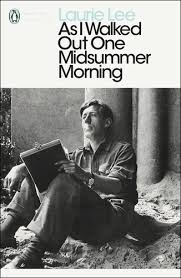 me across Laurie Lee as a 19-year-old while at university and anticipating my year abroad in Spain and Germany. In that year, 1969, Penguin published his book about his journey on foot across Spain in 1934, As I Walked Out One Midsummer Morning. me across Laurie Lee as a 19-year-old while at university and anticipating my year abroad in Spain and Germany. In that year, 1969, Penguin published his book about his journey on foot across Spain in 1934, As I Walked Out One Midsummer Morning.
The book tells of Lee’s walk from La Coruña to Málaga armed with very little but his fiddle. We learn of his adventures en route, the kindness of strangers, and we can smell the poetic descriptions of the food he samples. His trip is cut short by the onset of the Spanish Civil War in 1936 and he is repatriated to the UK, only to return later to fight against Franco in the International Brigades.
I couldn’t put the book down. It still rates as the best book about Spain that I’ve ever read, with Duende by Jason Webster, Driving Over Lemons by Chris Stewart, The Sun Also Rises by Ernest Hemingway and Ghosts of Spain by Giles Tremlett coming in a distant second, third, fourth and fifth.
"A Moment of War"
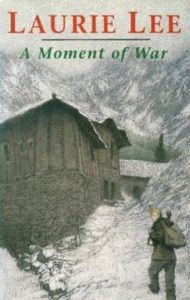 Hungry for more, I got a copy of A Moment of War, when it was eventually published in 1991. It was a long wait, but worth it. Hungry for more, I got a copy of A Moment of War, when it was eventually published in 1991. It was a long wait, but worth it.
This book describes how, in December 1937, Lee set out for Spain to fight for the Republican cause against Franco’s Nationalists. He could not persuade anyone to help him and so eventually crossed the Pyrenees alone in a snowstorm, armed with little else but his beloved fiddle.
He then encountered Republican sympathisers who suspected him of being a Nationalist spy and imprisoned him. On the day scheduled for his execution a fortunate encounter led to his being released and joining the International Brigades.
The book then recounts Lee’s experiences as a Republican soldier in Figueres, Valencia, Tarazona, Madrid, Teruel and Barcelona. He left Spain in February 1938.
There has been some doubt expressed about the historical accuracy of the book. Lee himself wrote that his diaries had been stolen and so he relied on memory for what is presented as an eyewitness account. He wrote it some 50 years after the event, so some inaccuracy is likely.
Nevertheless, it’s still a fine book, with Lee’s background as a poet shining through his prose.
"A Rose for Winter"
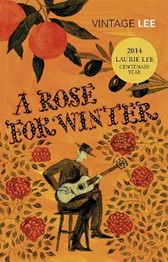 Fifteen years after his last visit Laurie Lee returned to Spain and specifically Andalucía. Fifteen years after his last visit Laurie Lee returned to Spain and specifically Andalucía.
He found a country broken by the Civil War, but the totems of indestructible Spain survive: the Christ in agony, the thrilling flamenco cry, the pride in poverty, the gypsy intensity in vivid whitewashed slums, the cult of the bullfight, the exultation in death, the humour of hopelessness. All of these the paradoxes deep in the fiery bones of Spain.
Rich with kaleidoscopic images, A Rose for Winter, first published in 1971, is as sensual and evocative as the sun-scorched landscape of Andalucía itself.
Oddly the order of publication does not coincide with the chronology of events. This last book of his “Spanish Trilogy” was published before his Civil War memoir, although Lee has explained this anomaly. But who cares anyway?
Epilogue 
Laurie Lee died aged 82 in May 1997 in his beloved village of Slad in Gloucestershire.
He was so admired and cherished in Spain that an obituary appeared in the newspaper El País.
Click here: https://elpais.com/diario/1997/05/16/agenda/863733601_850215.html
Other links:
BOOKS and WRITERS - Help me, Ronda
Laurie Lee – poet, womaniser and hispanophile
© Paul Whitelock
Acknowledgements:
Amazon, Google, Penguin Books, Secret Serrania, Wikipedia
Tags:
Amazon, A Moment of War, Andalucía, A Rose for Winter, As I Walked Out One Midsummer Morning, Chris Stewart, Culture Vulture, Driving Over Lemons, Duende, El País, Ernest Hemingway, fiddle, Ghosts of Spain, Giles Tremlett, Google, https://www.help-me-ronda.com, International Brigades, Jason Webster, La Coruña, Laurie Lee, Málaga, Paul Whitelock, Penguin Books, Slad, Spanish Civil War, The Sun Also Rises, Wikipedia
 0
Like
Published at 9:36 AM Comments (0)
0
Like
Published at 9:36 AM Comments (0)
Spam post or Abuse? Please let us know
|
|